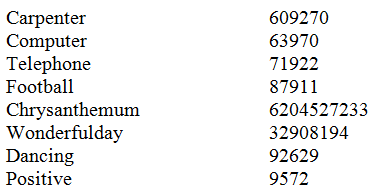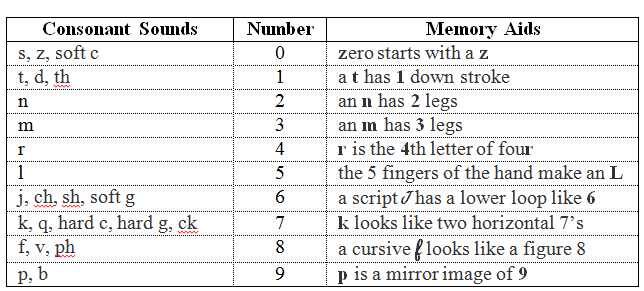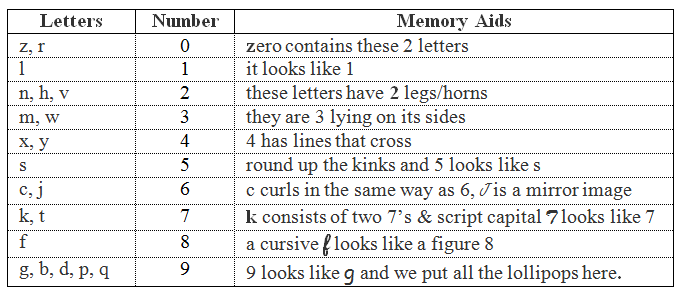So far, I have shown three ways of converting words to numbers in the posts “Creating Strong and Secure Passwords Easily” and the one on PINs, namely:
Two more ways will be introduced here.
The Phonetic System
This system is used in mnemonics (memory techniques) to remember numbers. The phonetic number system uses consonant sounds to represent the ten digits as follows:
W, h, y and the vowels have no value. They are, however, needed for words to be made. ‘h’ modifies the values of ‘c’, ‘s’, and ‘p’ if it comes immediately after these letters.
In mnemonics, numbers are converted to words and a memorable story or sentence is made up containing those words. The story/sentence will help the words to be recalled and thus the number they represent. In applying this system, the pronunciations and the sounds are what determine the values and not just the letters per se. Hence there are rules concerning silent letters, double letters and on dealing with the letter ‘x’ due to peculiarity of pronunciations. For a better idea, please see http://www.memorizeeverything.com/core_skills/numbers/
The advantage of using this method, sometimes referred to as the major system, is that there is no counting involved. When we look at the word, the number it represents will come to mind immediately. Some amount of practice is required. What it requires is a good understanding of English pronunciations.
Shapes associations
This one is an adaption of the phonetic system to help those who have difficulty with English pronunciations. Instead of sounds, we associate the numerical digits and the alphabets based on their shapes. Here is an example:
Here, all the letters, other than the vowels, have values. The words from the above examples will give completely different numbers:
You can see that it is quite easy to get a hang of it and the number comes very quickly. This adaptation also suggests that we can create our own codes. If you assign a different value to some of the letters, and it is quite easy to rationalize for them, you would have your own unique code. For example, you may also give values to the vowels as well, such as,
Any variation will raise the odds against hackers and this will indirectly make the system stronger for everybody because the hacking programs will have to deal with additional factors. To show what they have to contend with now that we can have versions 3 and 4 to convert words to numbers, here is a comparison for the variables we discussed in the post Creating Strong and Secure Passwords Easily:
For those who know languages other than English, they can use characteristics of these other languages for their coding. Those who know Chinese can see how they can use Chinese characters for their codings like that shown in the post “Coding with Chinese Characters”.
© Lim Jun Han



